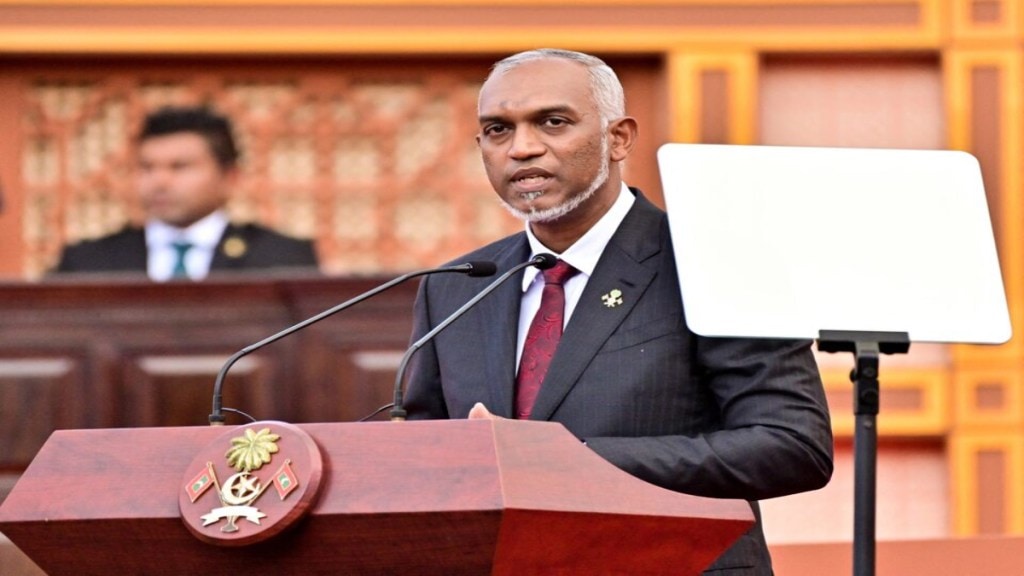With President Mohamed Muizzu winning big in the recent parliamentary elections in his country, India must prepare for stronger competition from China in the Indian Ocean Region.
The Indian Ocean Region has become more challenging for India as President Mohamed Muizzu’s People’s National Congress (PNC) won big in the Maldives’ parliamentary elections. This victory shows strong support for the party’s pro-China stance, while India aims to maintain its influence in the Maldives.
“This victory is bound to have an impact on the balance of influence that both India and China hold in the Indian Ocean region. One would have to wait for its long-term consequences,” opines Dr Aparaajita Pandey, Ph.D. from the Centre for Latin American Studies, Jawaharlal Nehru University.
In her view, “The Maldivian Parliamentary result could lead to a shift in alliances within the Indian Ocean Region. The party that has gained a majority in the Maldivian parliament has shown a proclivity towards China.”
Muizzu became President of the Maldives last year, winning against the pro-India former President Ibrahim Mohamed Solih. His party, PNC, now has a supermajority in the parliament, controlling 70 out of 93 seats.
The Maldives has become a battleground for influence between India and China, especially in maritime affairs.
In last year’s presidential election, Muizzu stood for former President Abdulla Yameen, who is also pro-China. China welcomed the election results, expressing willingness to strengthen ties with the Maldives.
India, however, has not responded yet, as Prime Minister Narendra Modi campaigns for re-election.
Experts suggest that Muizzu’s victory indicates public support for his policies, including his foreign policy towards India. Muizzu aims for partnership with India but on different terms, such as replacing Indian military personnel with civilians.
Muizzu has requested the removal of Indian military personnel stationed in the Maldives, signalling a shift in foreign policy. India has started withdrawing its personnel from the Maldives.
According to Dr Pooja Bhatt, an expert on Maritime security, “Parliamentary elections are more of a domestic issue than a foreign policy one. The win for President Muizzu’s party will enable him to fulfil his campaign promises that include economic development of Maldives that was promised by China recently.”
However, “Chinese inroads in the neighbourhood would be concerning for India in the coming times,” Dr Bhatt, author of the Nine Dash Line; Deciphering the South China Sea Conundrum, says.
According to a veteran diplomat, India must accept the election results and carefully navigate its relationship with Muizzu, considering historical ties and geographic proximity.
Despite aligning with China, Muizzu understands the importance of India’s support during crises.
According to Dr Pandey, “Maldives has traditionally been close to India and India has been present for Maldives in case of exigencies. However, with Muizzu winning, it is a fair estimate that Maldives would start inching closer towards China and it would not be farfetched to speculate greater interference by China in Maldivian politics.”
Over 200,000 Maldivians participated in the recent elections, with the PNC winning a significant majority.
India has invested heavily in infrastructure development in the Maldives, demonstrating its commitment to the relationship.
Therefore, India faces increased competition from China in the Indian Ocean Region following Muizzu’s victory in the Maldives’ parliamentary elections. Navigating this new dynamic will require careful diplomacy and strategic decision-making.

